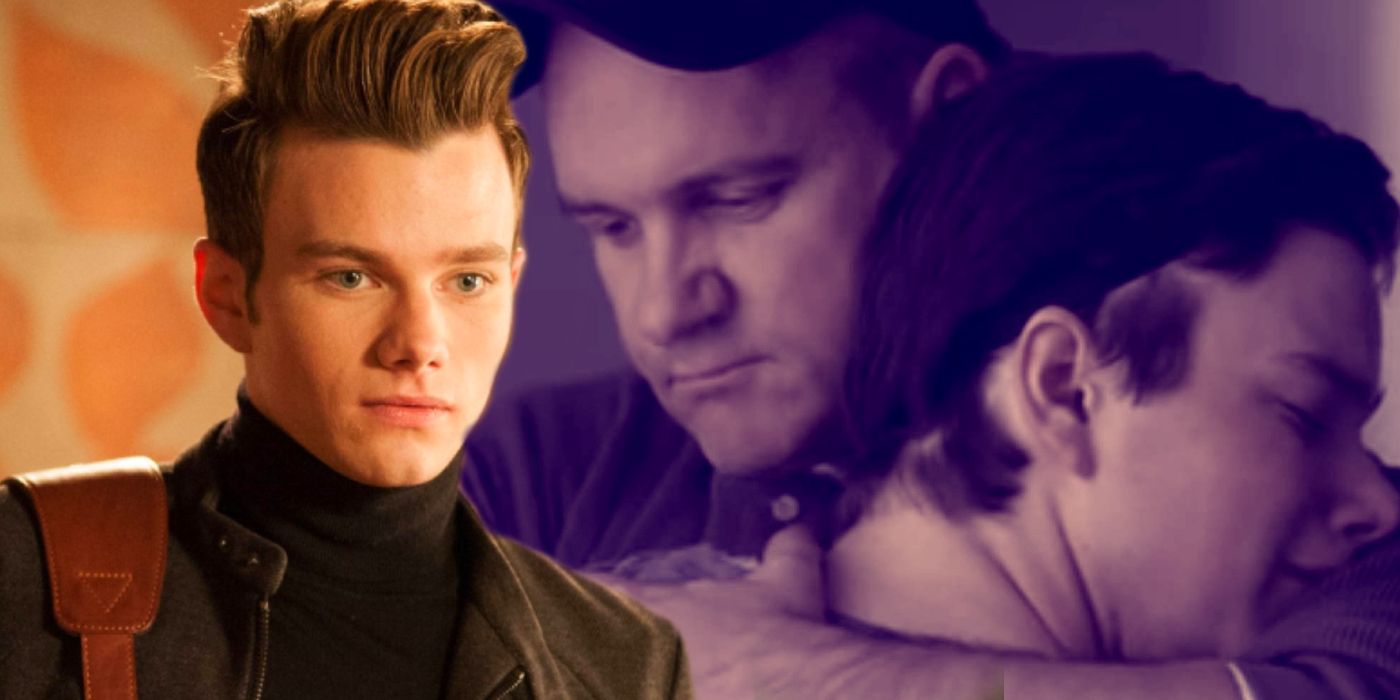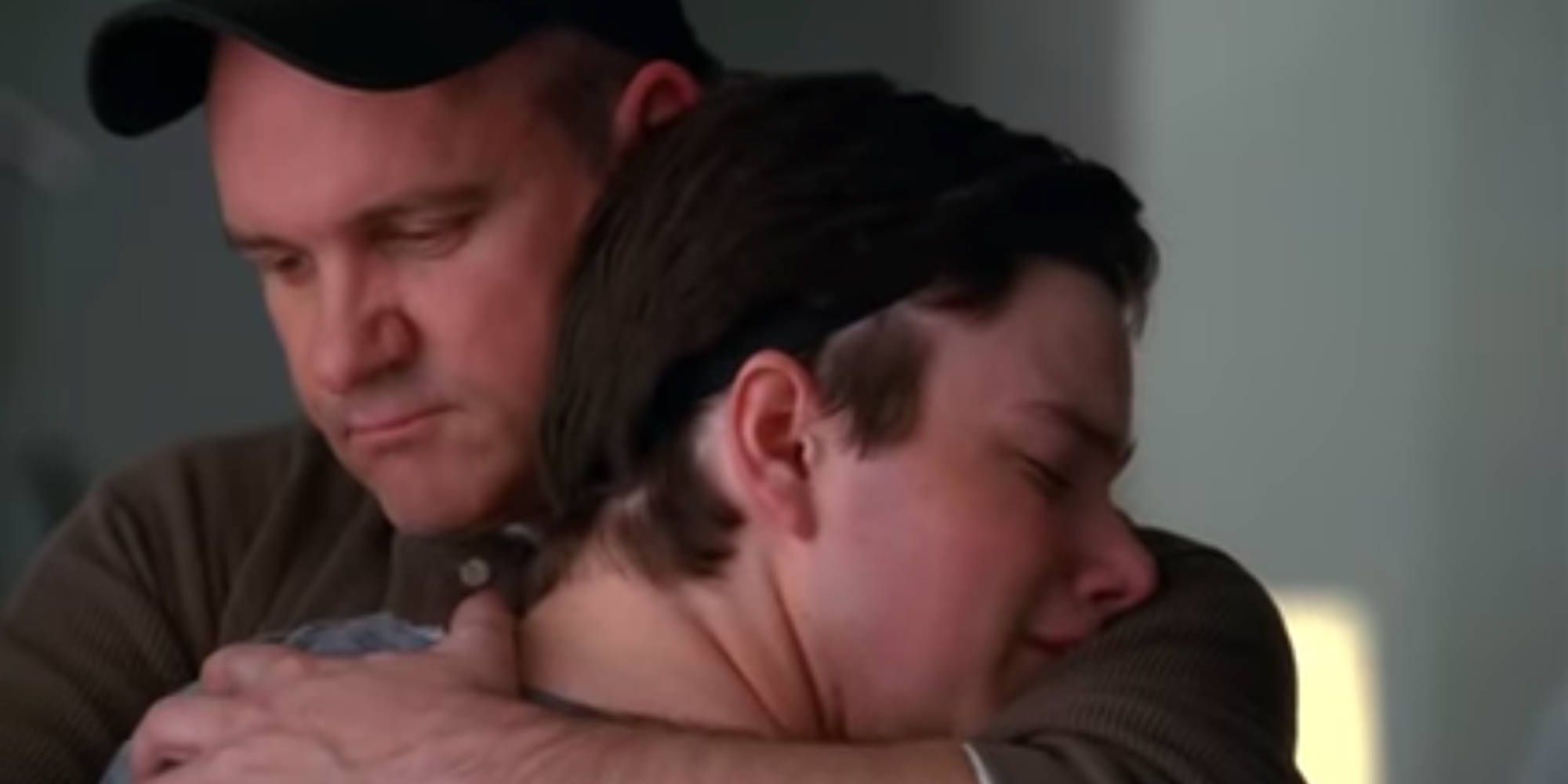Glee was a phenomenon during the early 2010s that pushed the boundaries of television, mostly through the coming-out story of the character Kurt Hummel (Chris Colfer). The musical comedy-drama Glee was not only known for featuring artists like Idina Menzel, it was also one of the first popular network shows that featured entire storylines around Kurt's struggles as a gay person living within a homophobic environment. To many people, Glee season 1, episode 4, “Preggers” was the first time they had seen a coming-out scene on a major network television show portrayed in such an accepting manner.
In Glee season 1, episode 4, “Preggers” Kurt Hummel decides to join the football team in order to impress his father Burt Hummel (Mike O’Malley). Kurt’s primary interests are musical theatre and fashion, so he often feels out of touch with his father, who likes sports, cars, and beer. Kurt uses his love of dance to excel on the McKinley High football team. Like High School Musical, Glee tackles how teenagers choose between the arts and sports. One night, after the game is over, Kurt and Burt return home wherein Kurt tells his father “I’m gay.” To which Burt responds, “I’ve known since you were three. All you wanted for your birthday was a pair of sensible heels. I guess I’m not totally in love with the idea, but if that’s who you are, there’s nothing I can do about it. And I love you just as much. Okay?” Throughout Glee, Burt overcomes his awkwardness around the idea of Kurt’s sexuality and learns to embrace and support all of Kurt’s identity.
Although Glee dropped various characters and may have had a number of plotholes, Kurt’s relationship with his father was one of the aspects of the show that has aged well. This is likely due to the real-life story that Kurt's coming out is based on. Glee’s creator Ryan Murphy, himself a gay man, used his own personal experiences coming out to his father as inspiration for the scene. While this moment cannot redeem all the mistakes Glee made within its six-season run, it serves as a positive representation of a parent-child relationship (wherein the child is a member of the LGBTQ+ community).
Ryan Murphy used his own coming out story as the direct inspiration for Kurt coming out to his father. Ryan Murphy wanted the moment to feel honest and respectful, and ultimately happy- which is why he used his own experience to make the moment more genuine. Ryan Murphy's continued success as a showrunner demonstrates that he succeeded. He clarified in an interview (via LA Times) that gay characters so rarely get happy endings, and even more rarely are their sexualities treated with dignity. He pointed out that it was just as important (if not more important) to see gay characters happy and thriving, especially since the LGBTQ+ community has suffered so much persecution and misery.
At the time of Glee's release, gay marriage was not yet legal and the representation of gay characters on television was strikingly small. Originally, Colfer auditioned for the role of Artie, but after auditioning Ryan Fuller realized Colfer was the perfect actor to break through gay stereotypes on television. While Colfer put himself in a very vulnerable position, the risk ultimately paid off. LGBTQ+ representation in media is important for giving queer audiences characters to relate to and by giving straight audiences a new perspective. As proof of Kurt's success and impact on television, Chris Colfer won a Golden Globe for his portrayal of Kurt on Glee.
While Glee may have promoted many harmful stereotypes throughout its run, its depiction of Kurt coming out to his father was a refreshing change of pace compared to how gay characters were treated in the past on television. Burt validating, accepting and loving Kurt while admitting he didn't understand everything about his sexuality was honest, emotional, and refreshing. By the time Glee ended after six seasons, Kurt and Burt gave audiences a healthy relationship between a father and his gay son that was rarely seen on television. Gay characters may not always have a happy ending on television shows, but Glee showed audiences that there is a place for this type of story.


